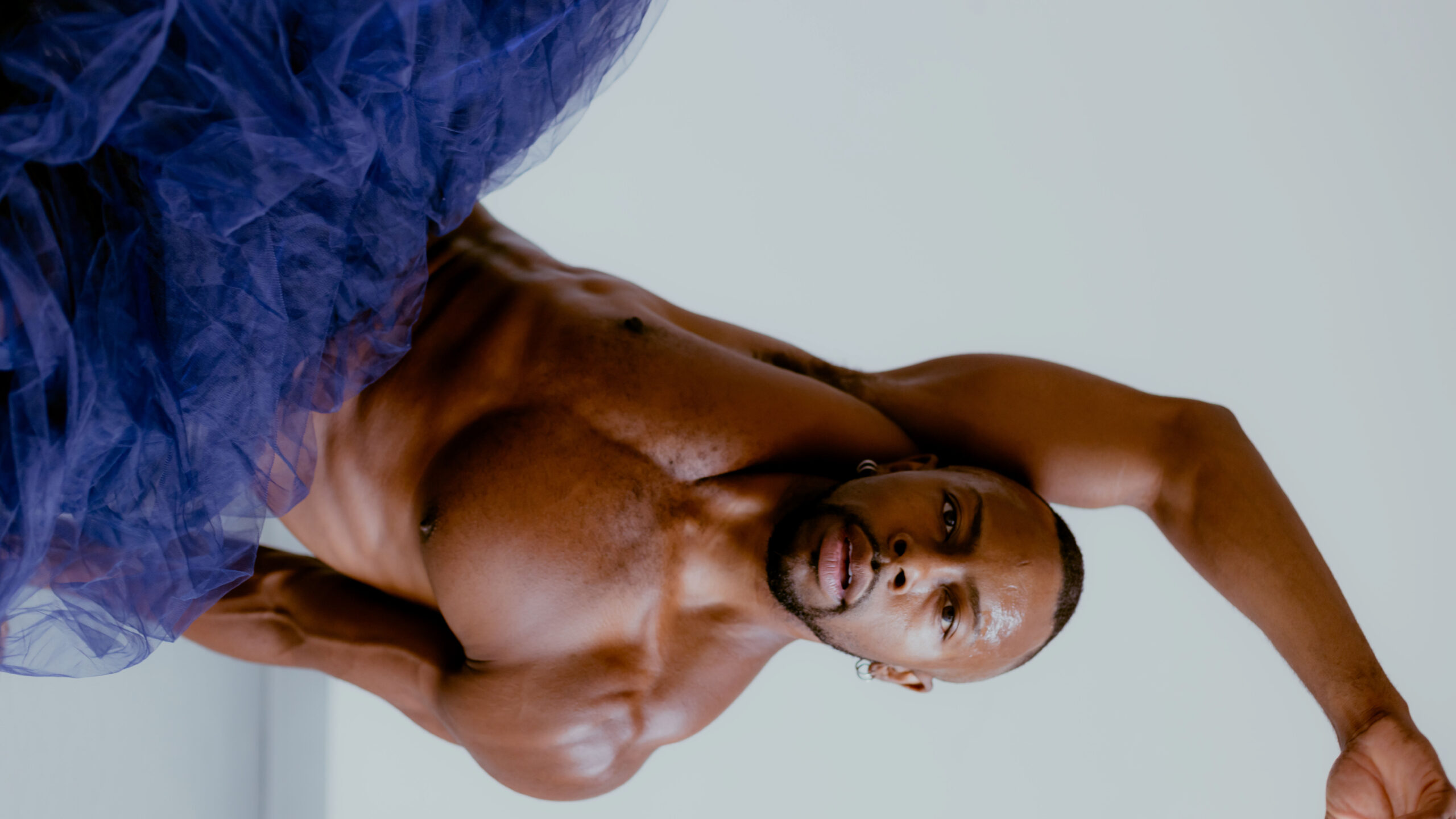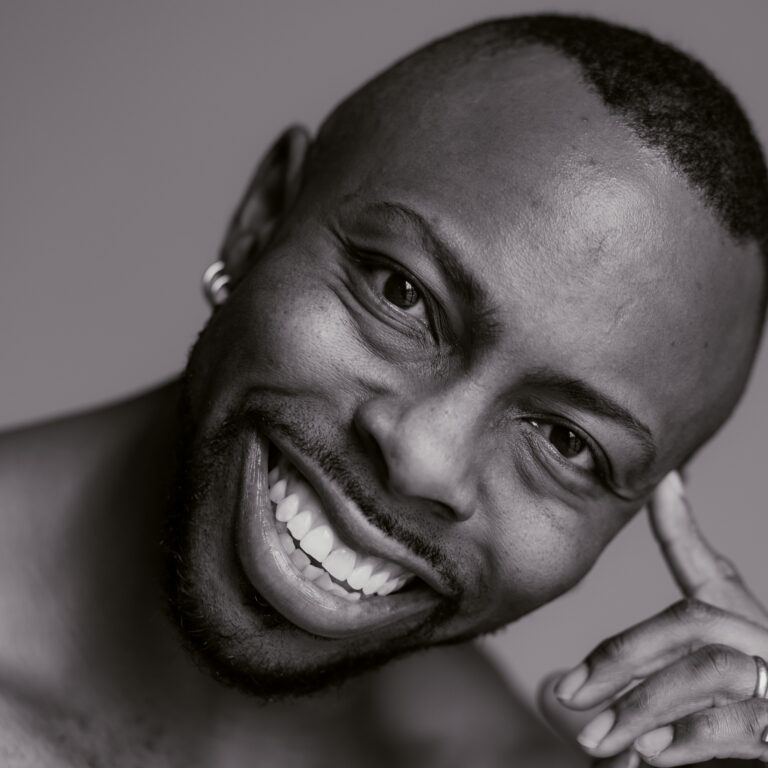 Portrait: Olivia Moon Photography
Portrait: Olivia Moon Photography
 Portrait: Olivia Moon Photography
Portrait: Olivia Moon Photography
Ruka White is an acclaimed choreographer, educator, and performer whose multidisciplinary work bridges commercial dance, concert performance, immersive theater, and Black futurist aesthetics. A native of Fort Lauderdale and a graduate of the Hollins MFA program, White has built a vibrant career that spans stage, screen, and studio — known for blending high-energy virtuosity with nuanced storytelling and cultural inquiry.
As the founder and artistic director of RUKADANCE, White has developed a platform for bold, genre-defying performance rooted in community, identity, and transformation. His choreography has been presented across the U.S. and internationally, noted for its cinematic theatricality, rhythmic complexity, and visceral physicality. Whether crafting intimate solos or large-scale productions, White centers movement as a vehicle for deeper social and emotional engagement.
Ruka has performed with renowned companies and choreographers, including Philadanco,Limon Dance Company, Dayton Contemporary Dance Company, and Karole Armitage’s Armitage GONE! His commercial credits include work for Netflix, NBC, and Off-Broadway productions, as well as creative collaborations in music videos, film, and fashion. Equally comfortable in a studio, on a soundstage, or in a black-box theater, Ruka moves fluently between contexts — always anchoring his work in purpose, play, and power.
In addition to his performance and choreographic achievements, Ruka is a passionate educator and mentor. He’s currently an Associate Professor at Boston Conservatory at Berklee, where he teaches a range of courses in commercial dance, Black movement aesthetics, and immersive performance. His pedagogy emphasizes cultural literacy, physical rigor, and artistic agency — fostering dancers who are not only technically proficient but critically engaged and creatively courageous.
White’s academic and artistic research often explores the intersections of Africanist aesthetics, queerness, masculinity, and performance as resistance. His immersive and site-responsive works challenge conventional notions of audience and stage, creating experiences that are both provocative and deeply human.
A frequent guest artist at universities and festivals, White has led masterclasses and residencies nationwide, and continues to support emerging artists in bridging conservatory technique with real-world application. His approach encourages rigor, rebellion, and reverence — a celebration of where the body’s intelligence meets cultural inheritance.
Whether through the sharp pop of a locking phrase, the soft ritual of floorwork, or a narrative thread woven across time and space, Ruka White’s work is unmistakably his own: alive with intention, shaped by history, and vibrating with contemporary urgency.
Lil-Red Velvet: A Faire tale is an immersive, movement-driven reimagining of the classic Little Red Riding Hood story, centering a queer male protagonist on a coming-of-age journey through danger, desire, and self-realization. Set in a theatrical world where fantasy meets nightlife, this new work explores themes of predation, transformation, and liberation through the intersecting lenses of drag, vogue, trap, burlesque, and cabaret.
In this adaptation, Little Red is no longer a naïve girl lost in the woods. Instead, he is a young queer man navigating the seductive and perilous terrain of becoming — moving through a world filled with coded expectations, hidden threats, and the blurry boundary between empowerment and exploitation. The Wolf, in this iteration, represents the predatory forces that target queer youth: power imbalances, manipulation, fetishization, and social invisibility cloaked in charm.
The narrative will be framed and threaded together by a Drag Queen narrator — equal parts guide, glamour witch, and subversive grandmother — whose storytelling is as biting as it is fabulous. The Drag Queen character serves as both performer and meta-commentator, challenging the audience’s assumptions and bridging the space between fairytale and lived experience. Depending on casting and staging, this figure may also portray the Grandmother, turning the domestic archetype into a bold guardian of queer lineage and survival.
The work will be scored with an original soundscape composed by a local Boston-based DJ, fusing the sensual textures of trap and the pulse of ballroom with the theatricality of cabaret and the glamour of burlesque. This sound world will serve not only as background but as a rhythmic and emotional spine for the choreography, which will integrate contemporary dance with elements of vogue femme, old way, and erotic movement vocabulary. The musical direction and community-based nature of the score are vital to rooting the work in Boston’s queer and artistic ecosystems.
The production will blur the lines between theater, nightclub, and ritual space — inviting the audience into a dreamlike world where familiar fairytale tropes are turned inside out. The wolf isn’t just in the woods. He’s in the dressing room. He’s buying you a drink. He’s promising you safety if you play by his rules.
Beyond its aesthetic layers, Lil-Red Velvet: A Faire tale is also a social justice intervention. The piece grapples with the vulnerability and resilience of queer youth, particularly queer youth of color, and critiques the ways in which patriarchal, heteronormative systems prey on perceived softness and femininity. The work acknowledges the seductive nature of danger — how wolves often wear perfume and tailored suits — while reclaiming power through community, chosen family, and performance as survival.
As an artist deeply invested in site-responsive and immersive performance, I envision this work being staged in an unconventional space: a warehouse, gallery, or ballroom environment where audiences can be part of the world, not just spectators. Intimate proximity will heighten both the beauty and the tension of the story, allowing the audience to feel implicated, included, and transformed.
The project will include community engagement components such as movement workshops for queer youth and BIPOC creatives, artist talks on queer storytelling in folklore, and public rehearsals that invite feedback and dialogue. These engagements aim to extend the performance beyond entertainment, providing space for empowerment, representation, and healing.
Lil-Red Velvet: A Faire tale is more than a retelling — it is a reclamation. By rewriting a cautionary tale that historically warned girls to fear the dark, this version gives voice to queer boys who were never allowed to speak in the first place. It asks: What happens when the prey becomes conscious of the hunt? What happens when the cloak is worn not to conceal, but to dazzle?
This project speaks to the urgency of reclaiming queer narratives, particularly in a sociopolitical moment where drag performers, trans youth, and queer expression are increasingly under attack. Through this work, I hope to cultivate a space for visibility, rebellion, and radical joy — wrapped in fur, sequins, sweat, and truth.